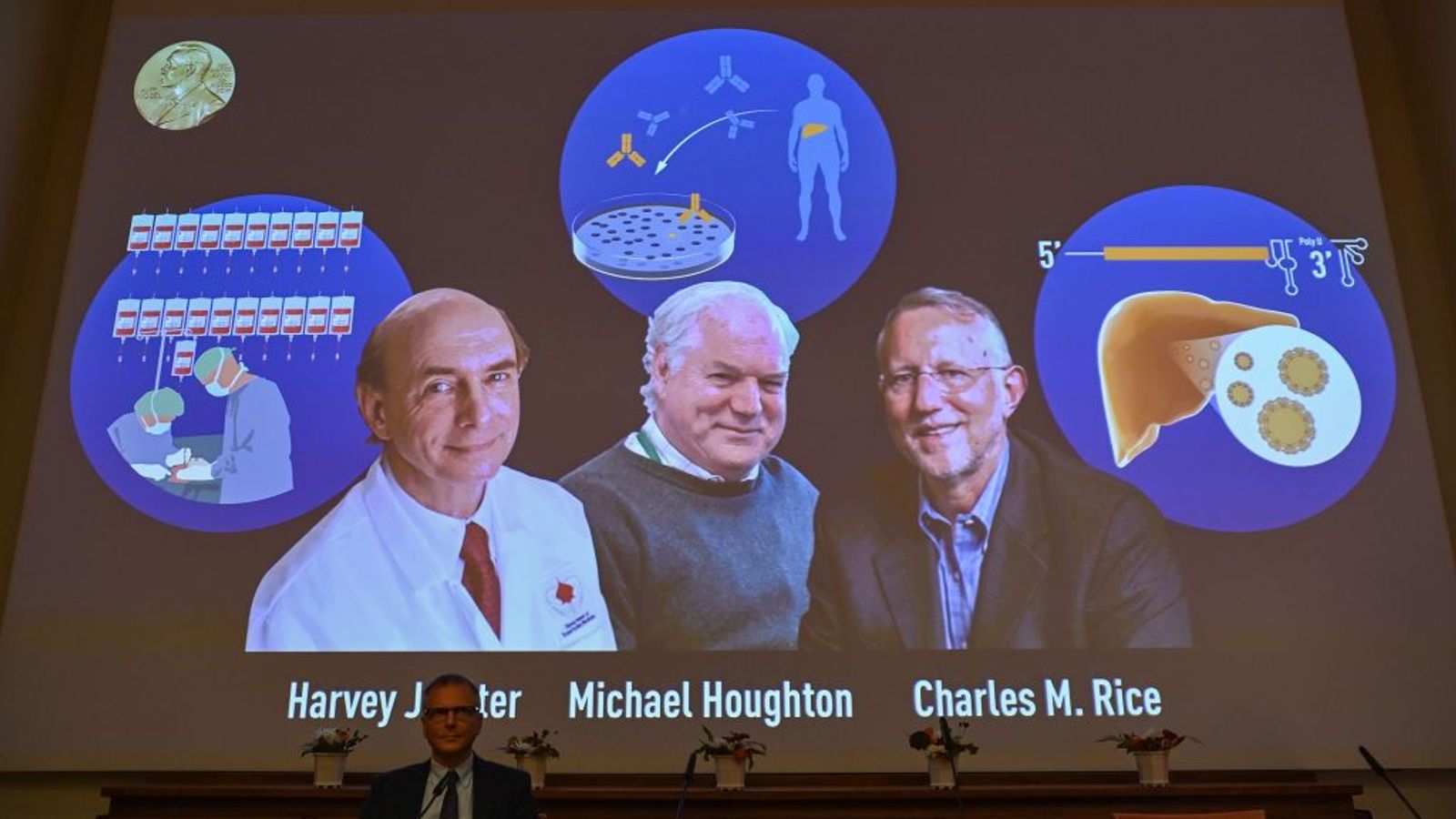A Briton is among three scientists who have been co-awarded a Nobel prize for the discovery of the hepatitis C virus.
Michael Houghton, along with Americans Harvey Alter and Charles Rice, will receive a gold medal and prize money of $1.1m (£780,000) for their work which identified the virus in 1989.
The discovery was “a landmark achievement in the ongoing battle against viral diseases”, according to the Nobel Prize committee, delivering the award for physiology or medicine in the midst of the coronavirus pandemic.
Prior to the trio’s work, while the discoveries of the hepatitis A and B viruses were vital, the majority of blood-borne hepatitis cases were still unexplained.
The identification of the hepatitis C virus revealed the cause of the remaining cases of chronic hepatitis and it led to blood tests and new medicines that have saved millions of lives.
The committee said: “Thanks to their discovery, highly sensitive blood tests for the virus are now available and these have essentially eliminated post-transfusion hepatitis in many parts of the world, greatly improving global health.”
Hepatitis “is insidious”, said the committee, “as otherwise healthy individuals can be silently infected for many years before serious complications arise”.
“Blood-borne hepatitis is associated with significant morbidity and mortality, and causes more than a million deaths per year worldwide, thus making it a global health concern on a scale comparable to HIV-infection and tuberculosis.”
The hepatitis B virus was discovered in the 1960s by Baruch Blumberg, who would himself win the Nobel Prize in Medicine in 1976 for this work.
But when Harvey Alter was working at the US National Institutes of Health, he was finding a large number of blood-transfusion patients were developing hepatitis which he proved conclusively wasn’t caused by the B virus.
“It was a great source of concern that a significant number of those receiving blood transfusions developed chronic hepatitis due to an unknown infectious agent,” the committee stated.
“Alter and his colleagues showed that blood from these hepatitis patients could transmit the disease to chimpanzees, the only susceptible host besides humans.”
This mysterious illness became known as “non-A, non-B” hepatitis, and the priority turned to identifying the virus itself.
Michael Houghton “undertook the arduous work needed to isolate the genetic sequence of the virus”, but succeeded in doing so – identifying what became named the hepatitis C virus.
Charles Rice then proved that this virus alone could cause hepatitis in blood transfusion patients by analysing the genome, alongside experiments on chimpanzees.

